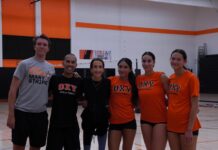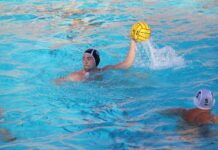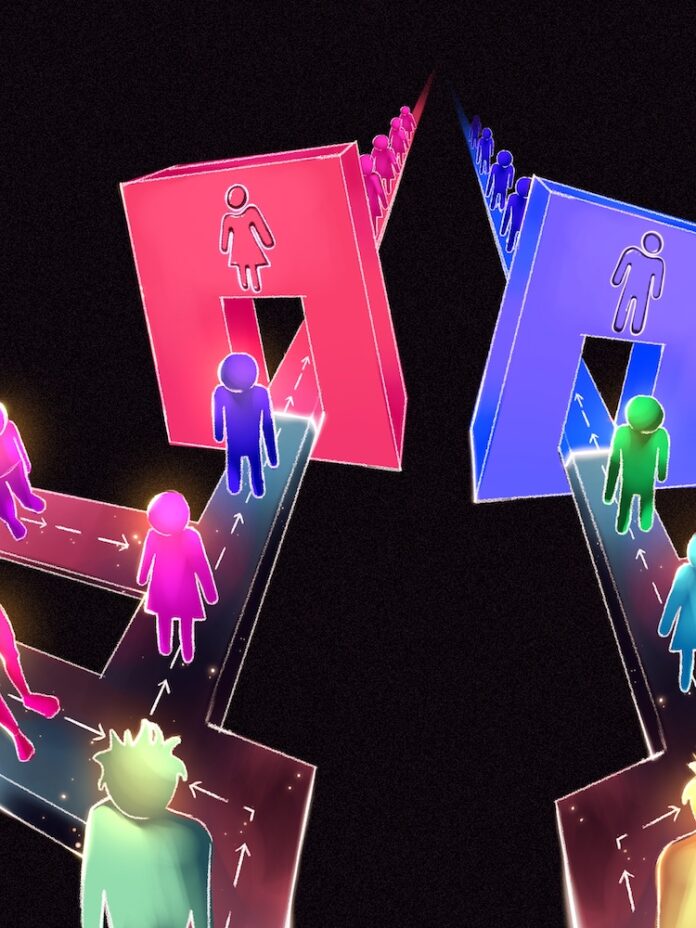During the Involvement Fair in September, I stood at the WAC booth repeating the phrase “We’re Oxy’s Ultimate Frisbee team, WAC, that competes in the women’s division of USA Ultimate” to prospective students.
“What does WAC mean?” people asked.
“It doesn’t mean anything — it’s a noun,” I tried to explain.
“But where does it come from?” they pushed.
Explaining the origin of WAC’s name is a tedious task. When returning members of the team couldn’t meet and practice in person due to the pandemic, we spent the year working on our ethos and rebranding the team to be more inclusive of gender non-conforming people on campus. WAC, an acronym for the Women’s Air Corp, explicitly stated we were a team for women until 2021 when the team wanted to change its name. For so long, it was the Air Corp bit of the name that caused a pause, as Oxy nor the team has any relation to the army. However, this part of the title wasn’t the issue for me. As someone who hates the label of “woman” for myself, I feel discomfort any time we use the team’s full name.
The team decided to hold a vote to change the name, but WAC as a noun still beat out a team-created name “Nova.” Since WAC was already a nickname that the team was attached to, it was hard for some people to part with. The solution was to turn it into a noun rather than an acronym. It’s a perpetual cycle: as a club sport, we try to remove ourselves from using branded language, but are forced back into those gender binaries in order to explain who we are and what we do.
Ultimate Frisbee, as a recreational and professional sport, aims to be gender inclusive with men’s, women’s and mixed-gender divisions of the sport. Any given athlete is able to self-identify which division or team they want to compete for, even if their choices are firmly within a gender binary across all levels of Ultimate.
Many athletes in other sports, however, don’t have the luxury of being able to compete in the division that matches their individual gender identity. Many sports leagues use women in their name in order to differentiate themselves from the men’s leagues, even if the men’s leagues don’t specify what gender their participants are. For example, the NBA is the National Basketball Association, while the WNBA is the Women’s National Basketball Association.
There are very few openly transgender players in professional sports leagues. Currently, Kumi Yokoyama and Quinn are the only transgender players in the National Women’s Soccer League (NWSL). Quinn was the first transgender person to win an Olympic gold medal when the Canadian women’s soccer team won in 2021; yet they are constantly misgendered by broadcasters and media and are forced to compete for awards like “Woman of the Week.”
The lack of choice and strict rules regarding testosterone levels at the college, national and international levels restrict transgender athletes’ freedom to compete in the division or with the teams they feel the most comfortable. Seeing other professional athletes like CeCe Telfar, a transgender runner, banned from competing at the Olympic level is especially frustrating because the rules around what constitutes a gender in sports are so arbitrary.
I grew up playing youth sports in Oregon, where I was never limited to gendered divisions of sports. I participated in mixed gender soccer in high school and the level of play never dropped off. Without the constraints of gendered team names, I could build my own identity. I played soccer in the Elite Clubs National League (ECNL), not the women’s ECNL, and that subtle language difference helps open up accessibility to people of all gender identities.
In order to ensure the inclusivity within sports for all genders, organizations must understand how binary gendered nomenclature affects gender non-conforming and transgender athletes. Quinn’s gold medal win shows there is a place for non-binary and transgender people within women’s divisions of sports. Their success inspired me to ensure that the organizations I am involved with at Oxy are equally as welcoming.
Despite slow progress toward institutional changes, changing the language around club sports on Oxy’s campus is a positive and necessary step forward. For now, we’re still WAC and will be unfortunately forever associated with the Women’s Air Corp so long as the team’s name remains; but this dissatisfies me. In order to become inclusive for people of all genders, we need a complete overhaul, not just in Ultimate, but in the larger sports world.
![]()




































